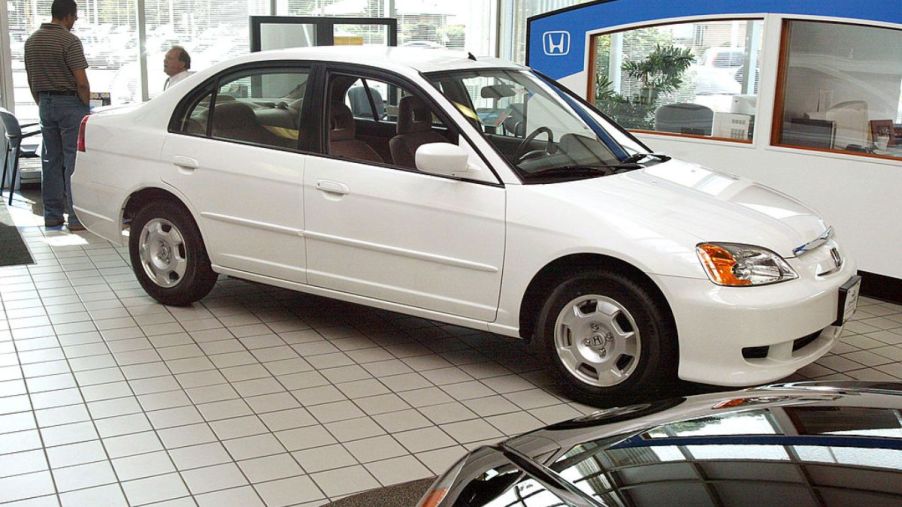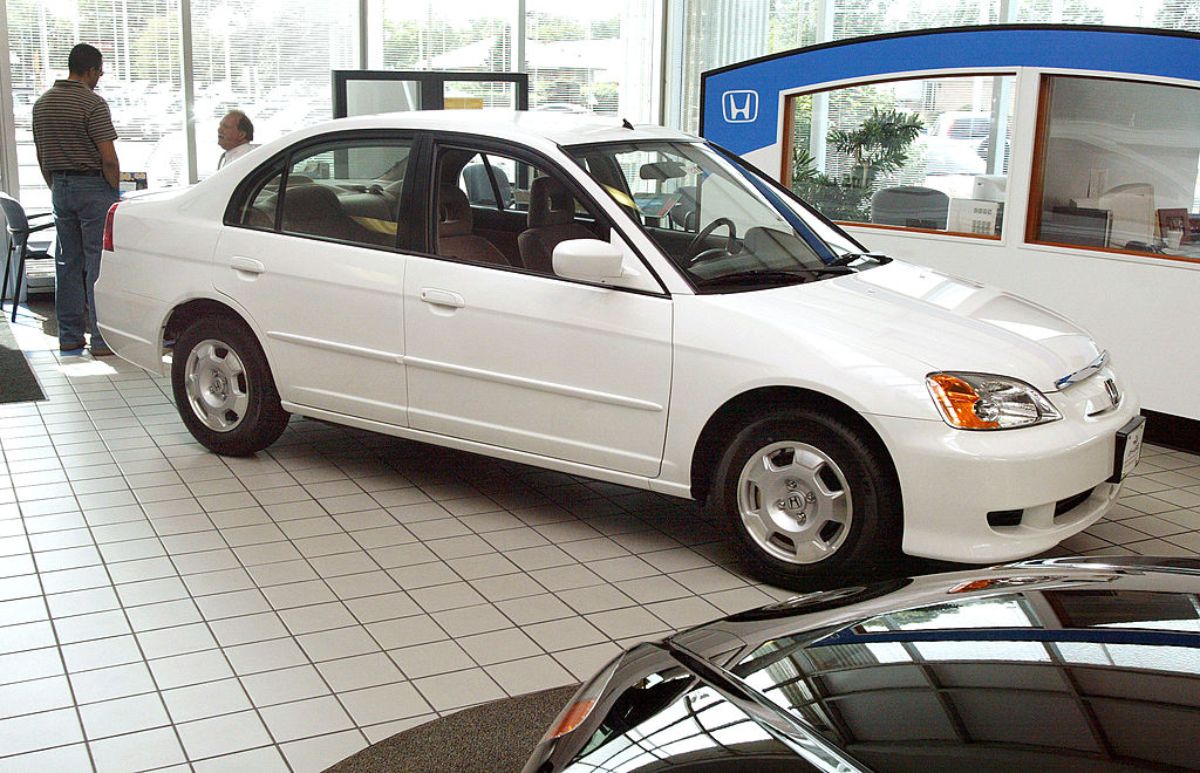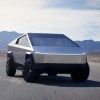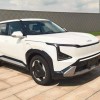
3 Ways the 2003 Honda Civic Hybrid Is Worse Than Its Gas-Powered Model
Over the last few years, hybrid cars have become commonplace. But in 2003, the availability of hybrids was scarce. The Honda Insight debuted at the turn of the century, and the first-generation Toyota Prius quickly followed in the U.S. As Toyota was set to release the second generation of its hybrid vehicle, Honda responded with the Civic Hybrid.
As eco-minded drivers may have revered the early hybrid, it wasn’t the biggest improvement over the gasoline-only Civic. In fact, there are three reasons why the 2003 Civic Hybrid failed to live up to the gas-powered model.

Reason #1: Less powerful engine
Customers were given a 1.7-liter naturally aspirated four-cylinder for the standard Honda Civic. While it wouldn’t win any races in stock form, it provided an acceptable 115 horsepower and 110 lb-ft of torque.
On the other hand, the 2003 Civic Hybrid came with the Integrated Motor Assist (IMA) system—a term used in the early days of hybrid engine technology. Similar to the system that first appeared in the Honda Insight, the IMA combined a gasoline engine and an electric motor.
The 1.3-liter four-cylinder had one overhead camshaft and just two valves per cylinder, but was exceptionally advanced. It could even shut down three cylinders during deceleration to improve battery recharging. By itself, the four-cylinder developed 85 horsepower and 87 lb-ft of torque.
Positioned between the engine and transmission was a 10-kWh electric motor producing 13 horsepower and 46 lb-ft of torque. A five-speed manual transmission was standard, but power output dropped if the continuously variable transmission (CVT) was selected.
The combined propulsion was 93 horsepower and 116 lb-ft of torque with the manual transmission. If the CVT was ordered, torque output dropped to 105 lb-ft, Edmunds said.
Reason #2: Less trunk space
While the interiors of the vehicle configurations were identical, that isn’t the case with cargo space. The regular Civic could hold 12.9 cu-ft of cargo in the trunk—perfectly average for the small car segment.
One aspect of the IMA system that wasn’t mentioned is the energy storage unit, a hallmark of any hybrid car. The 144-volt nickel-metal hydride battery was located behind the Honda’s rear seats in the trunk. Although it wasn’t a massive unit, environmentally-friendly driving sacrifices some cargo space. The 2003 Civic Hybrid’s trunk held only 10.1 cu-ft of belongings.
Reason #3: The 2003 Honda Civic Hybrid was more expensive but didn’t translate to comparable fuel savings
When it was new, the Honda Civic came in five trim levels—DX, HX, LX, EX, and Si. With cloth upholstery and steel wheels, the base DX started at $12,810, Autoblog reports. $19,000 afforded the sporty Si with a 160-horsepower 2.0-liter four-cylinder.
The EX at $16,810 even came with a sunroof. Yet, the Civic Hybrid was pricier. The fuel-friendly model was comparable to the HX trim level, which carried a $13,710 MSRP. But for the extra electric oomph, the price jumped to $19,550. One may think the fuel savings will offset the extra cost, but think again.
The 1.7-liter engine with the five-speed manual could achieve 31 mpg in the city and 39 mpg on the highway, per the EPA. The Civic Hybrid’s powertrain could achieve 37 mpg in the city and 45 mpg on the highway. Selected with the CVT, a combined 40 mpg was possible.
Therefore, the subsequent fuel savings are lower than one may think and would only be seen after well over a decade of ownership.
Was the 2003 Honda Civic Hybrid a good choice?
Although the 2003 Honda Civic Hybrid may have been a poor selection over the gas-powered model, it still beat others. For example, the 2003 Toyota Prius had 114 horsepower, much more than the Civic Hybrid, Edmunds says.
However, the Prius produced only 82 lb-ft of torque to the Civic Hybrid’s 105. The Prius did have the Civic Hybrid beat with cargo space, though, with 11.8 cu-ft allotted in the trunk.
Yet, if one were buying a hybrid in 2003, they would be looking at the Prius’ $19,995 starting MSRP. It’s only $495 more than the Civic Hybrid, but they’re quite similar in fuel economy. The EPA estimated 42 mpg in the city and 41 mpg on the highway for the Prius. It’s better than the Civic Hybrid with the CVT, but not necessarily more than the manual transmission version.


